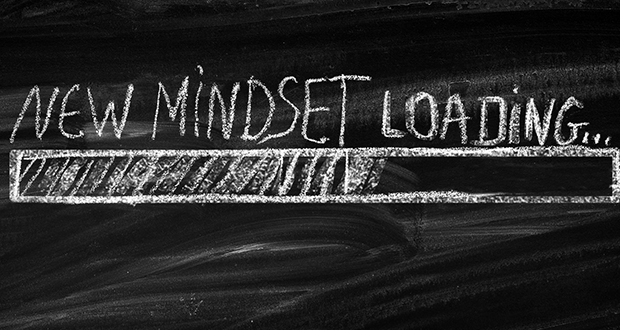The phrase ‘home schooling’ is being used to describe what parents in some states in Australia and globally are experiencing, with the temporary cessation of formal face-to-face schooling in lieu of remote modes of learning.
Undoubtedly, some students will find this shift extremely challenging, and will need significant support and structure from parents and carers to be able to engage with the learning resources provided by their schools.
For the majority of students, however, the current context could be seen as an opportunity for them to work more independently to foster what are arguably the most important long term goals of an education, and which many argue are the competencies and characteristics that will best prepare students to lead successful lives post-school.
These are not tied to specific content knowledge or expertise, but rather include creativity, empathy, ethical and critical thinking, collaboration, communication, persistence and prioritising personal and community wellbeing.
Parents can be encouraged to feel less responsibility for their student’s academic instruction, and more reassured by the potential this global event offers for students to make connections and develop ‘real life’ perspectives and skills – which may not be as daunting for parents to facilitate than they first think.
The priorities and emphases of an education typically reflect the broader socio-cultural context of the corresponding period in human history. Education has always had a crucial agenda-setting function. The objectives of education tend to be related to those perceived needs of a post-school workforce and economy.
School just 40-odd years ago emphasised preparation for students to take up traditional vocations and trades, influenced by the importance of standardisation and memorisation of facts. For at least the last 20 years, educators and commentators have been calling for the need for an ‘education revolution’, to encourage schools to shift their focus from mastery of content primarily, deemed less crucial in a post-internet age, towards the cultivation of ‘general capabilities’ or ’21st century’ skills such as creativity, collaboration and critical thinking, which would better serve students to participate in our democracy and grapple with an uncertain economy, working in jobs that don’t yet exist.
Arguably, the students who will be successful are those who can learn to tolerate unpredictability, who can deploy pragmatism and optimism in the face of disruption, and who can recruit empathy to build connections and collaborate effectively with others.
If our formal education system allows students to develop these traits, and a strong personal identity, sense of agency and purpose in our diverse and rapidly changing world, we will have succeeded. What better opportunity for this than in the current COVID-19 remote learning context?
But mainstream secondary school curricula reflect a traditional approach and emphasises content knowledge. The current emphasis on simply finding ways to translate that to online learning is a missed opportunity. Whilst higher education entry requirements are slowly diversifying from sole reliance upon the ATAR ranking, currently the majority of students study a program shaped by VCE/HSC exam preparation.
This trickles down to influence what is prioritised in school from as early as Year Seven. Academic Amelia Peterson argues that a school curriculum shaped by high stakes exams is ‘intrinsically misaligned’ with alternative valuable priorities, and freezes efforts to modernise curricula to better reflect the characteristics and competencies modern society values. Not to mention it isn’t working for kids, either: students commonly report feeling bored and anxious at school.
In light of these problems and challenges with ‘schooling as usual’, could remote learning in Term 2 be an opportunity to engage students with fostering general competencies?
Students could be encouraged to pursue a passion project in an area of interest, perhaps in a non-traditional discipline, or to research a live and engaging ‘big question’ they choose for themselves, developing many general skills along the way.
They could conduct an inquiry or extended project with real-world applications that addresses an issue in their personal or broader world related to our current context.
They could create their own content such as creative writing, a primary source for a time capsule, art, song or dance. They could experiment with different practices that support mental and physical wellbeing, working out which ones support and suit them best.
These learning experiences would go a long way to equipping students with increased self-confidence, agency, identity, critical and creative thinking and empathy by the end of this period of remote learning.
COVID-19’s impact on education is a brilliant opportunity to recruit uncertainty in the service of innovation, as so many are doing. We can choose to frame this ‘unprecedented’ educational arrangement for Term 2 as the catalyst for exploring new priorities and ways of working, which many have so long been advocating for. These put the student at the centre and engage them with learning experiences they are responsible for driving, not the adults in their life.
Rather than feeling weighed down by inadequacy and worry that their children will ‘fall behind’ with them as the reluctant ‘teacher’ at home, parents can be encouraged by these reflections on the traits and competencies an education in 2020 is trying to foster, and the role this term might play in students developing them.

Emily Hehir is a secondary school teacher in Victoria. She has been published in The Age opinion pages on issues related to education, and been featured on SBS's Insight program speaking about issues relating to technology and education.
Do you have an idea for a story?Email [email protected]
 Education Review The latest in education news
Education Review The latest in education news

One of the difficulties with this discussion is the variety of positions that education stakeholders are taking on this issue. The need for 21st-century skills of collaboration, problem-solving and project management is clearly needed and desired by some but there is still an argument for handwritten, knowledge-based exams. The quote of “I don’t want my surgeon following YouTube instructions whilst they have me on the table” is bandied about.
Our school is endeavouring to meet the needs of both by using a blended learning approach where traditional face-to-face teaching is complemented by online learning and/or activity. Unfortunately, there is little in the way of research or staff development available for 7-12 schools into how this can work effectively in practice. The tertiary and VET sectors, particularly in the USA and the UK are much further down this track.
Until there is a cohesive and coherent method or model that is based on solid research any changes to curricula or pedagogy all seem a bit hit-and-miss.